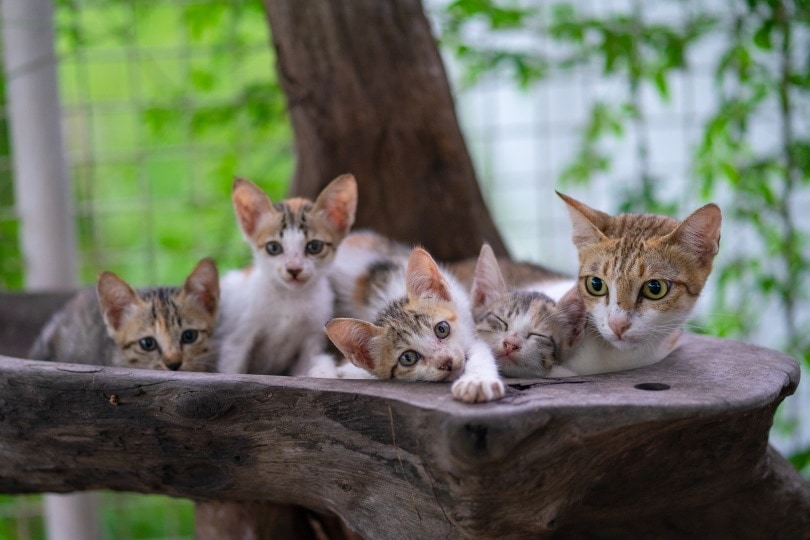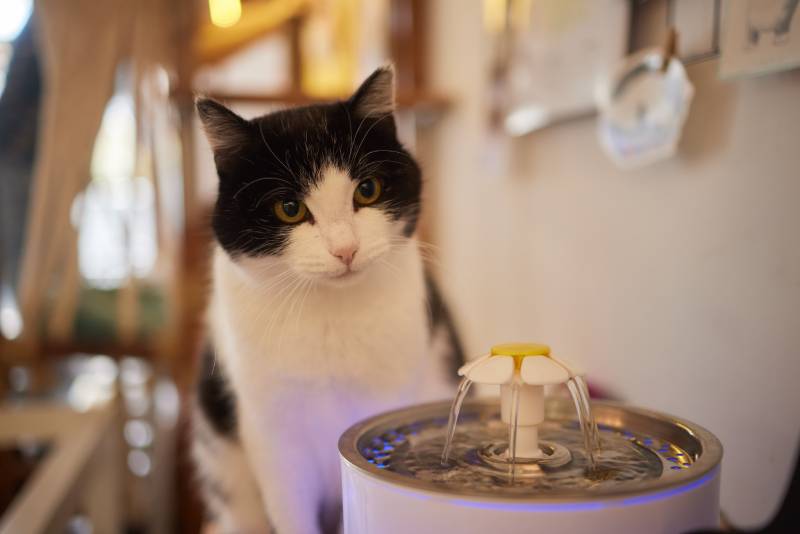Lightweight vs. Regular Cat Litter (2024 Comparison): Which One Is Better for My Cat?
Updated on
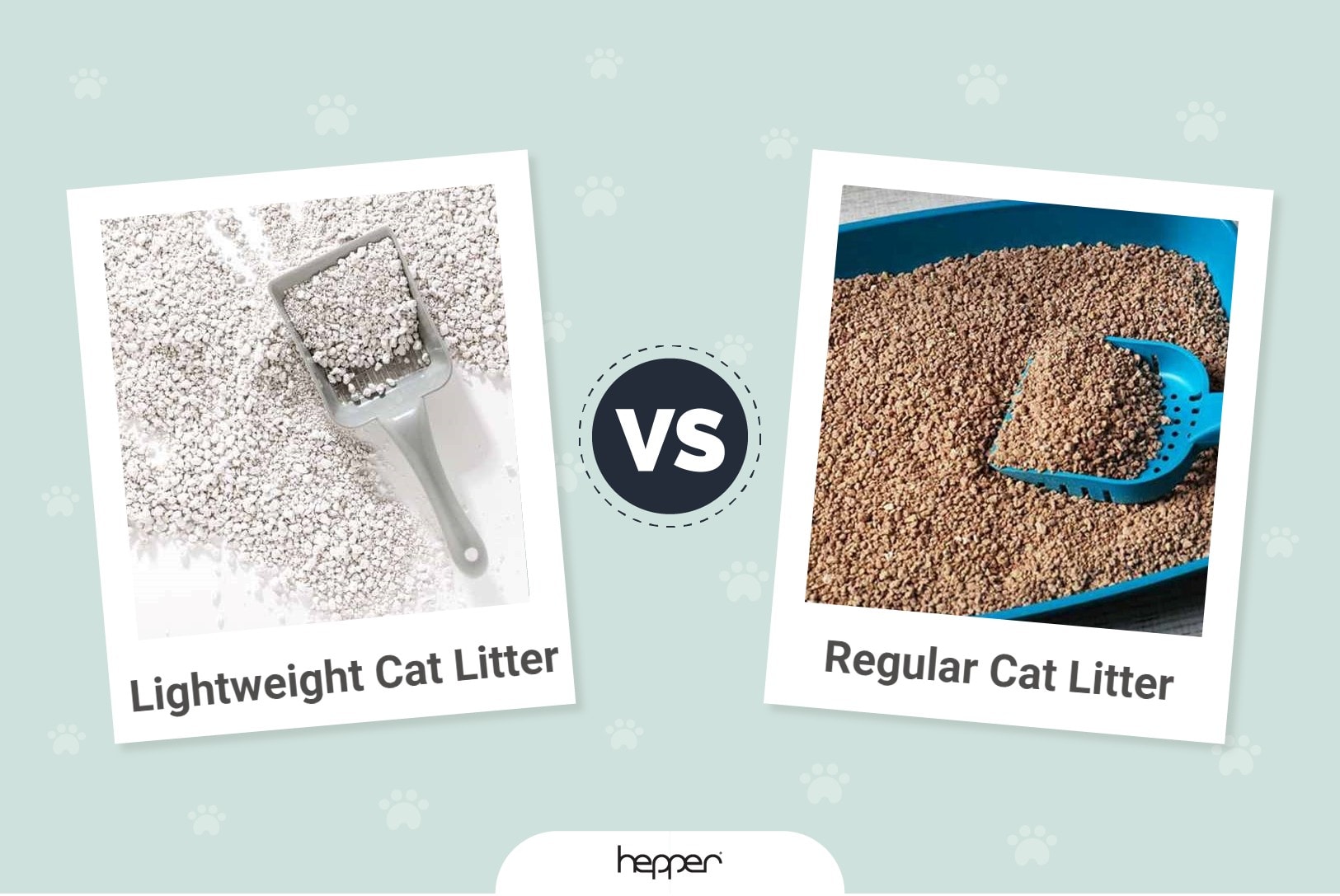
Every cat owner knows the importance of quality cat litter. Litter helps keep our cats and homes clean and the air from getting stinky. The problem is that there are many different cat litter options available on the market, which can make it difficult to determine which will work the best for your feline family member. For example, there is a type of litter that claims to be lightweight, but is it as good as or even better than regular cat litter? That’s the question that we set out to answer here.
Overview of Lightweight Cat Litter:
Lightweight cat litter is comprised of clay, like a regular clumping litter, but light minerals are mixed with it so there is less clay, making it weigh less. The minerals typically used include perlite, bentonite, and diatomaceous earth. Perlite is the most common type of mineral found in lightweight cat litter. All these minerals are extremely lightweight.
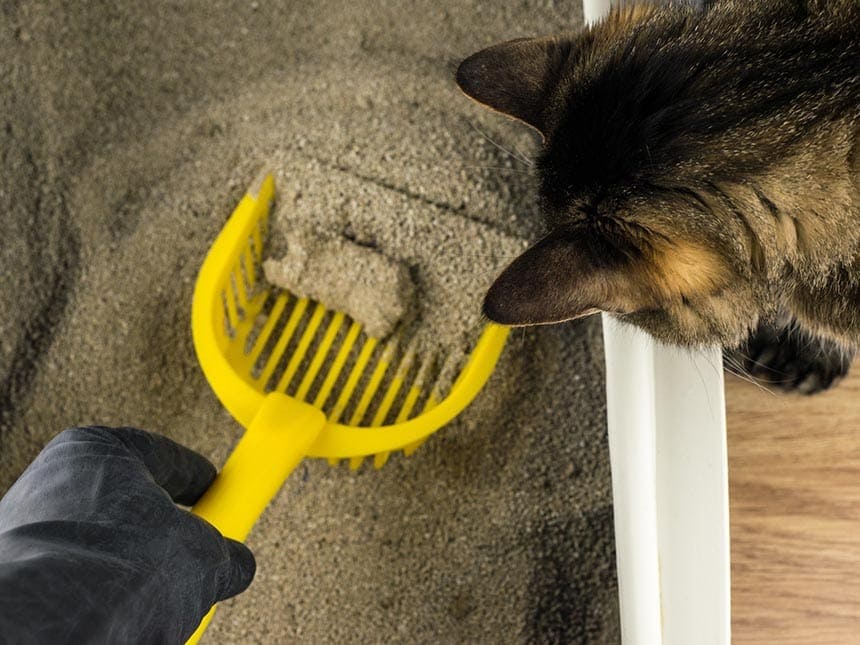
How Does Lightweight Cat Litter Work?
The clay is lightweight yet can absorb urine similar to how regular litter does. The lightweight minerals absorb moisture because the mineral pieces are extremely porous and there is plenty of room to hold moisture effectively and efficiently within. Not only does the clay and mineral mixture in lightweight cat litter absorb well, but it also clumps up immediately so it can be scooped out.
This typically results in a reduced need to replace the cat litter completely as time goes on. One problem some cat owners notice, however, is that the litter is so lightweight, it can easily get tracked around the house and caught between a feline’s paws. This can lead to more cleaning for you and discomfort for your cat.
Is Lightweight Cat Litter Safe to Use?
It’s understandable to be wary of what’s in your kitty’s litter. After all, how do you know that it will not injure them in some way? The truth is that many lightweight litter brands do not disclose what is in their litter blends for proprietary reasons. However, we do know that the ingredients are a mix of clay and natural minerals. There could be just one mineral or a mixture of multiple minerals in lightweight cat litter, depending on the brand and recipe.
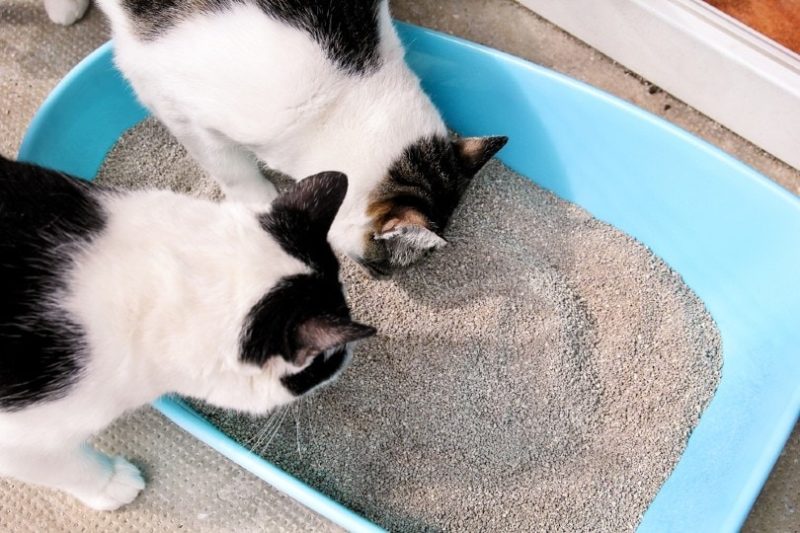
The good news is that the natural minerals used in lightweight cat litter are considered generally safe, as long as it is not eaten. It is important to note that perlite is labeled as a nuisance dust by OSHA. Inhalation of the mineral can exasperate lung conditions. If you or your cat have asthma or a lung condition, it’s a good idea to avoid the use of lightweight cat litter.
- Lighter in weight than traditional types of cat litter
- Easier to transport than other types of cat litter
- Works about the same as regular clumping cat litter
- Natural minerals in the cat litter may exacerbate asthma and other lung-related issues
Overview of Regular Cat Litter
Most traditional cat litter is made from clay because it absorbs moisture so well. Many times, this type of litter is mixed with natural odor-neutralizing ingredients, like baking soda. The additives help keep odors under control inside the home, but they cannot overcome everything. The litter box must be changed a couple of times a week and/or scooped multiple times a day to keep odors to a minimum.
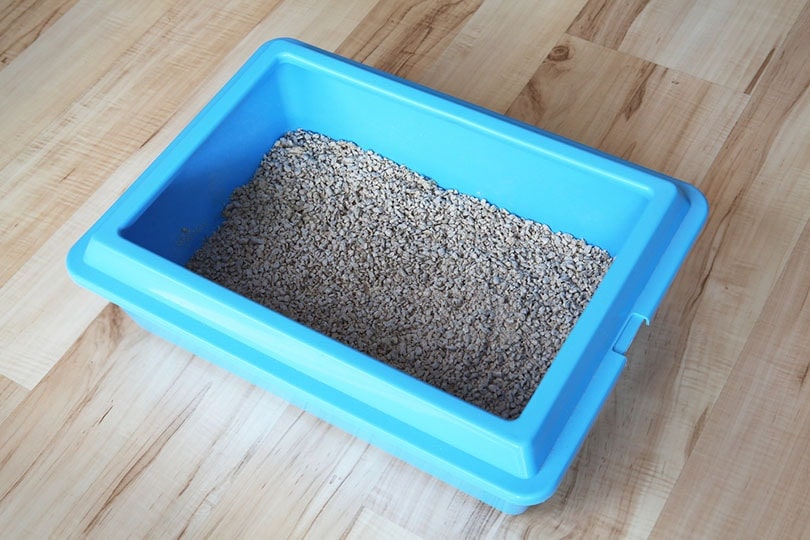
How Does Regular Cat Litter Work?
Regular clay cat litter works by enabling urine to seep through to the bottom of the litter box. Then the clay slowly absorbs the liquid until it clumps and is ready to be discarded. The clumping happens as the clay expands due to its moisture content. The expansion softens the clay pieces and melds them together, creating clumps that can easily be scooped out.
It is important to scoop the litter box daily to keep odors under control. You may have to try more than one type of litter to see which works best for your household. Most litters contain natural elements that work to keep odors from building up, but some work better than others.
Is Regular Cat Litter Safe to Use?
Clay is safe for cats to use as litter and does not cause any serious risks if ingested. However, clay does produce dust, which can be bothersome and make a mess, especially around the cat litter box. Small animals like rabbits can develop respiratory illnesses when breathing dust in. If you have small animals in your home, it’s a good idea to stay away from clay and choose a natural litter like one made of pine or corn.
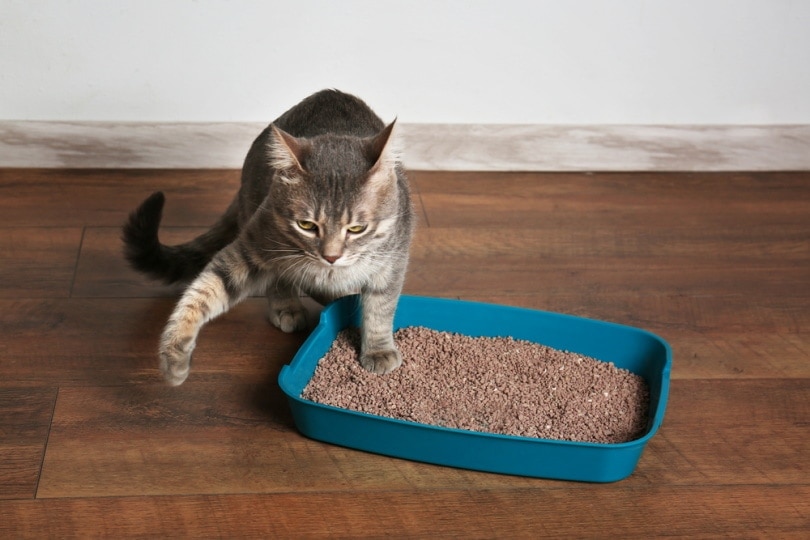
- Cost efficient
- Lower tracking risk than lightweight cat litter
- Reliable performance
- Not safe for small animals like rabbits
Factors to Consider When Choosing a Type of Cat Litter
There are a few important things to consider when choosing a type of cat litter for your household to utilize. It should all come down to what’s safest for your cat and what your cat likes the best. The first thing to consider is how your cat deals with the litter. Do they seem comfortable walking in it? Does it get stuck between their toes? Next, consider how the litter performs in your home. Does it create noticeable dust? Does it track throughout the house? Another thing to consider is convenience and cost. Is the litter easy to carry, store, and use? Is it budget friendly?
Conclusion
Lightweight and regular cat litter are similar, but there are a few differences to take note of when deciding which type to invest in. There are pros and cons to both lightweight cat litter and the regular kind, so the one that you choose will depend on the preferences of you and your cat.
Featured Image Credit: (L) IriGri, Shutterstock | (R) Africa Studio, Shutterstock

